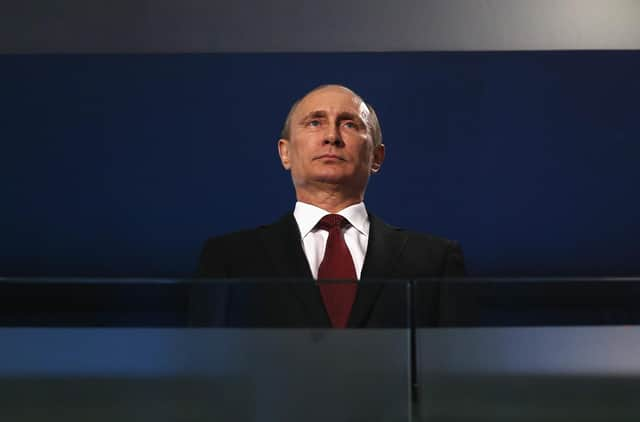Is Vladimir Putin hankering for the days when he worked with East Germany's notorious Stasi? – Scotsman comment


But then, the West’s relations with Vladimir Putin are almost as frosty as when communist dictators ruled the roost in the Kremlin.
Russia’s invasion of Ukraine, the Salisbury poisoning attacks, Moscow’s support for the brutal Bashar Assad in Syria, and Putin’s crushing of domestic dissent – including the likely poisoning of opposition leader Alexei Navalny, who was later sent to prison – are all good reasons to be extremely wary of KGB agent-turned-president.
Advertisement
Hide AdAdvertisement
Hide AdHe may perhaps be hankering for the ‘good old days’ when he was a Soviet spy in the former East Germany.
In 2017, Putin revealed he had taken part in “illegal intelligence-gathering” during his time there in the 1980s and claimed, immodestly, that KGB spies had “special qualities, special convictions and a special type of character”.
He worked with the notorious Stasi state security service, which had possibly as many as two million informants and had amassed files on about six million East German citizens, more than a third of the population.
Putin was an agent in Dresden when the communist regime collapsed in 1989 amid mass pro-democracy protests by people thoroughly sick of this level of state surveillance. For him, the fall of the Berlin Wall was not so much a cause for celebration as a defeat.
Some of those in the West who spied for Moscow during the Cold War appear to have convinced themselves that they did so in a good cause. Anyone who does so today can have no such delusions.
A message from the Editor:
Thank you for reading this article. We're more reliant on your support than ever as the shift in consumer habits brought about by coronavirus impacts our advertisers.
If you haven't already, please consider supporting our trusted, fact-checked journalism by taking out a digital subscription.
Comments
Want to join the conversation? Please or to comment on this article.
